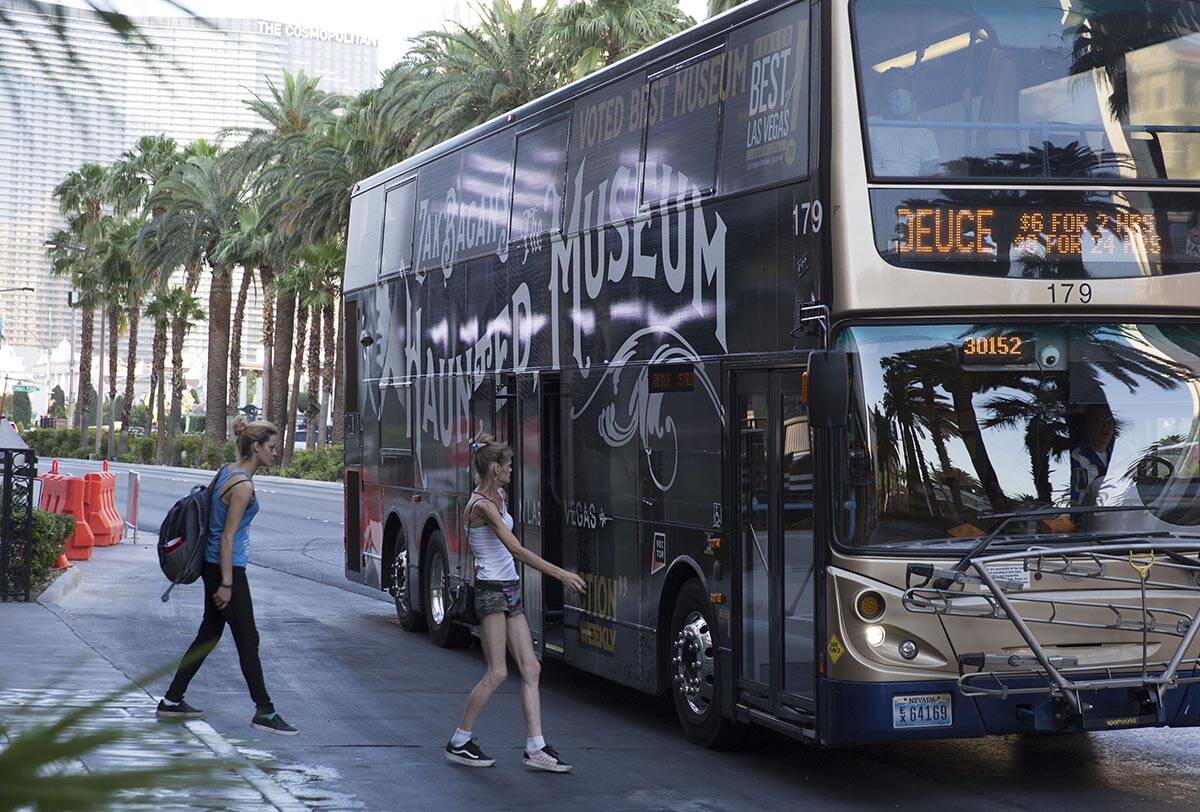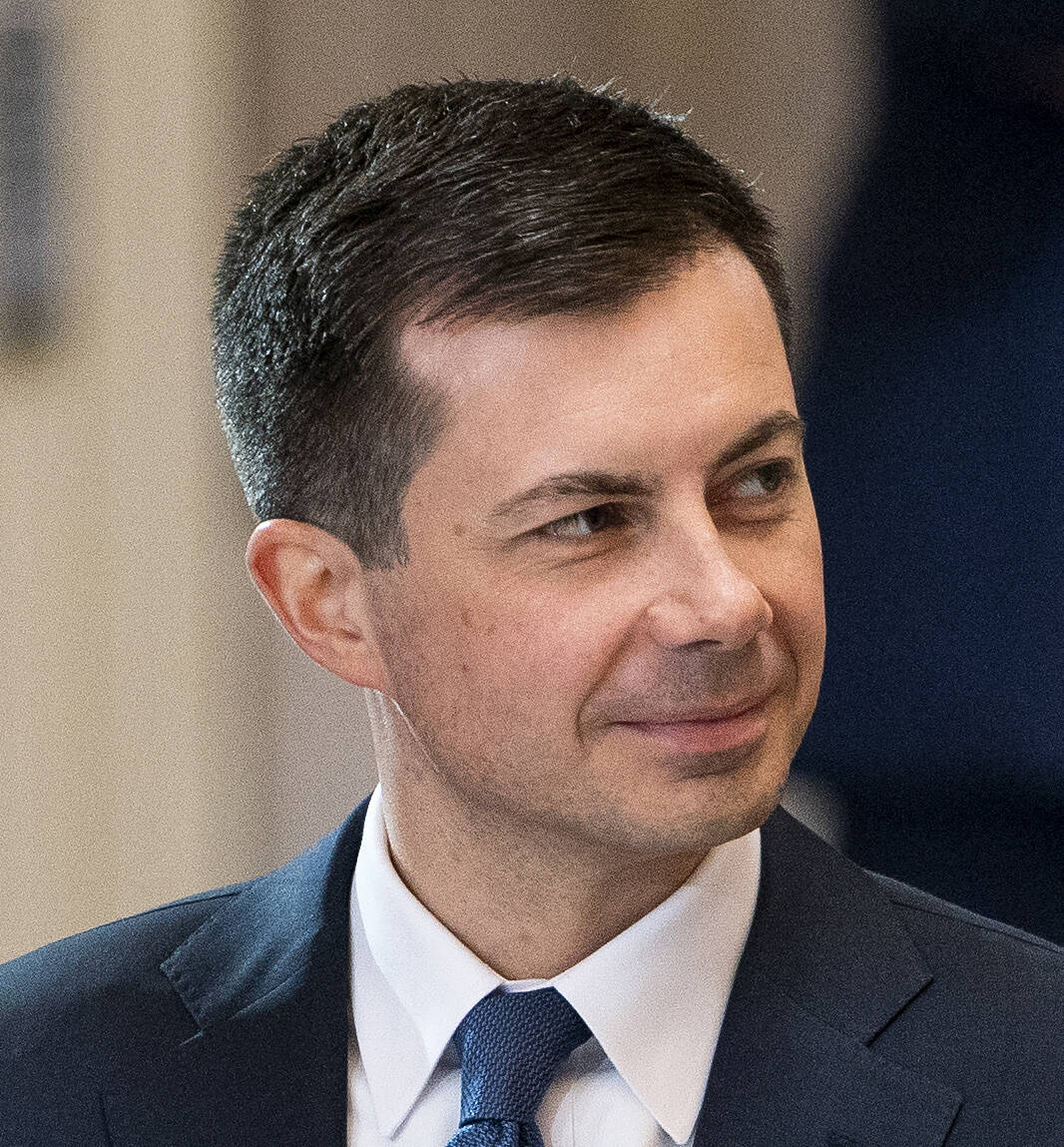Nevada gets $89M from feds for public transit upgrades
WASHINGTON — Nevada will receive $89 million this year as part of a $20 billion allotment for public transit upgrades and improvements that were included in the bipartisan infrastructure law, administration officials said Wednesday.
Transportation Secretary Pete Buttigieg told reporters on a conference call that the $20 billion is the “largest investment in public transit in our nation’s history.”
The money will allow local transit agencies to buy new buses and rail cars, address repair backlogs and use new technology to upgrade fleets, combat climate change and lessen the nation’s carbon footprint, Buttigieg said.
The funds will also help improve service for the elderly and underserved communities who rely on public transportation for daily needs, he said.
“Every day, transit connects millions of Americans to jobs, schools, groceries, hospitals, resources, and countless other opportunities — all while helping to reduce pollution, congestion, and traffic,” Buttigieg said in a later statement that included a breakdown of where the funds will go.
The funds for Nevada were determined by a formula set by Congress. The money will be distributed by the Department of Transportation through the Federal Transit Administration.
Nevada’s urban areas with more than 200,000 in population will receive the largest chunks of the transit money.
Las Vegas-Henderson transit systems will get $59 million; Reno will be allocated $11 million; and the Lake Tahoe region in Nevada and California is slated to get $4 million.
The Fallon Paiute Shoshone Tribe in Northwest Nevada is slated to receive $244,000 for public transit operations in Churchill County.
Remaining funds for Nevada will be sent to the state to be distributed to smaller towns, tribal communities and transit systems, an administration official said.
The $20 billion in public transit funds were included in the $1.2 trillion infrastructure bill cobbled together by Democrats and Republicans and passed last November.
President Joe Biden, who lobbied for the infrastructure bill to create jobs and boost the economy following the coronavirus pandemic, signed the bill into law during a White House ceremony.
All told, Nevada will receive more than $4 billion of the total package for roads, bridges, water and sewerage systems, expansion of broadband and other transportation and infrastructure projects.
Nevada’s entire congressional delegation voted for the bipartisan infrastructure bill.
Sens. Catherine Cortez Masto and Jacky Rosen, both Nevada Democrats, tucked several items into the Senate version of the infrastructure bill, including additions for wildfire prevention and broadband expansion for rural and underserved communities.
The House Transportation and Infrastructure Committee, of which Rep. Dina Titus, D-Nev., serves as a subcommittee chairwoman, helped write highway and transit portions in the House bill.
Rep. Mark Amodei, R-Nev., and Rep. Susie Lee, D-Nev., are both members of the House Appropriation Committee, which drafted the spending legislation. Rep. Steven Horsford, D-Nev., is a member of the tax-writing House Ways and Means Committee.
Cortez Masto and Lee successfully added a water recycling project in the bill that will benefit Nevada and California as drought conditions persist in the region.
The allotment of funds announced Wednesday, however, was specific to public transit systems and improving service for those who depend on buses and local rail for transportation.
Titus called the funding for public transit critical for the Las Vegas-Henderson area, providing enhanced and improved services “that are vital for connecting people with daily needs, including employment, education and health care.”
Rosen also applauded the funding. “This will provide critical transportation resources to better connect our communities, help our economy, and ensure Nevada families and workers can travel safely across our state.”
The public transit portion of the infrastructure law also creates competitive grant programs to encourage planning and future improvements.
Contact Gary Martin at gmartin@reviewjournal.com. Follow @garymartindc on Twitter.
























